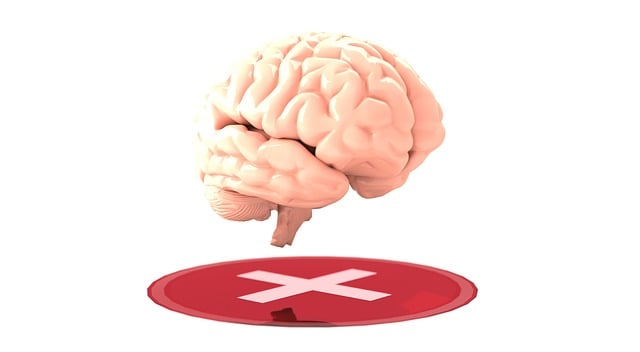Stress in young children, often caused by academic pressure or Functional Neurological Disorders (FNDs), requires early detection from parents and tailored stress reduction methods. FNDs manifest as physical symptoms with no medical cause, emphasizing the need for mental wellness therapy. Effective treatments include cognitive-behavioral techniques, sensory integration, mindfulness practices, and social skills training, which improve emotional intelligence and reduce social stressors. At home, mindful breathing exercises and structured schedules can benefit children with FND, fostering better communication and emotional expression through consistent parent-child connections.
Stress reduction is a vital aspect of mental health, especially for young children. This article explores effective methods to alleviate stress, focusing on its impact and causes in children, including those with functional neurological disorders (FNDs). We delve into various therapy approaches tailored for kids, offering practical strategies for parents. From understanding childhood stress to implementing home techniques, this guide equips caregivers with tools to support young minds, ensuring a healthier and happier future for their children. Discover effective ways to navigate and manage stress in children through evidence-based practices.
- Understanding Stress in Young Children
- Functional Neurological Disorder and Its Impact on Stress
- Effective Therapy Approaches for Stress Reduction in Kids
- Implementing Stress Management Techniques at Home
Understanding Stress in Young Children

Stress in young children is a growing concern, often stemming from various sources like academic pressure, social interactions, or even underlying health conditions. Unlike adults, children may struggle to articulate their feelings, making it crucial for parents and caregivers to recognize signs of distress. This early recognition is vital for implementing effective stress reduction methods tailored to their needs.
Functional neurological disorders (FNDs) can contribute to a child’s stress, manifesting as physical symptoms with no apparent medical cause. Such conditions demand professional attention, often facilitated through therapy designed to support mental wellness. Self-esteem improvement and emotional intelligence are key aspects of these therapeutic interventions, aimed at empowering children to manage their emotions and build resilience. The Mental Wellness Podcast Series Production offers valuable insights into these strategies, highlighting the importance of early intervention for fostering holistic development in young individuals.
Functional Neurological Disorder and Its Impact on Stress

Functional Neurological Disorder (FND) is a complex condition that can significantly impact an individual’s ability to manage stress. Often affecting young children, FND presents as a physical symptom without a clear organic cause, such as chronic pain or motor issues. This disorder can be particularly challenging because it often co-occurs with anxiety and depression, making stress reduction a crucial aspect of treatment.
The impact of FND on stress is multifaceted. Children with FND may experience heightened sensitivity to sensory stimuli, leading to overactivity in the brain’s threat response system. This can result in an increased perception of stressors and difficulty regulating emotions, exacerbating existing stress levels. Therapy for young children with FND often focuses on cognitive-behavioral techniques, sensory integration therapy, and mindfulness practices—all of which are beneficial self-care practices that can aid in burnout prevention strategies for healthcare providers and promote anxiety relief.
Effective Therapy Approaches for Stress Reduction in Kids

Stress reduction is a vital aspect of mental health, especially for young children who are still developing coping mechanisms. For kids dealing with functional neurological disorders (FNDs), specific therapeutic approaches can be highly effective. One such method is Social Skills Training, which helps children improve their interaction and communication abilities, fostering better relationships and reducing social stressors. This training often involves role-playing scenarios to teach appropriate responses in various social situations, promoting a sense of control and confidence.
Additionally, incorporating Mindfulness Meditation into therapy sessions can empower kids with tools to manage stress instantly. Simple breathing exercises and guided meditations help children calm their minds and bodies, reducing anxiety and improving emotional regulation. Many programs also include Stress Management Workshops, where young participants learn about stress triggers, healthy coping strategies, and effective time management skills tailored to their age group. These workshops encourage open discussions, allowing kids to share their experiences and gain insights from peers facing similar challenges, creating a supportive environment for overall well-being.
Implementing Stress Management Techniques at Home

Implementing Stress management techniques at home can be a powerful tool for individuals and families, especially those dealing with conditions like Functional Neurological Disorder (FND). Therapy for young children with FND often emphasizes self-awareness exercises tailored to their unique needs. These practices encourage kids to recognize and express their emotions effectively, fostering emotional intelligence. By integrating simple yet impactful strategies into daily routines, parents can create a supportive environment that enhances communication. For instance, mindful breathing exercises or positive affirmation rituals before bed can help children unwind and prepare for sleep, reducing overall stress levels.
Additionally, creating structured yet flexible schedules allows for consistent routines while accommodating unexpected changes. This predictability is beneficial for kids with FND as it improves their sense of control and self-regulation. Communication strategies, such as using visual aids or simple language, can further strengthen the bond between parents and children, enabling better expression of needs and feelings. These techniques, when implemented consistently, contribute to a calmer and more manageable household environment.
In conclusion, stress reduction methods tailored for young children play a crucial role in their overall well-being. By understanding the unique ways children experience stress, such as those exacerbated by functional neurological disorders, parents and caregivers can implement effective therapy approaches at home. These strategies not only help kids cope with immediate stressors but also foster resilience, promoting long-term mental health. Effective stress management techniques empower children to navigate challenges, ensuring they grow into emotionally balanced adults.










